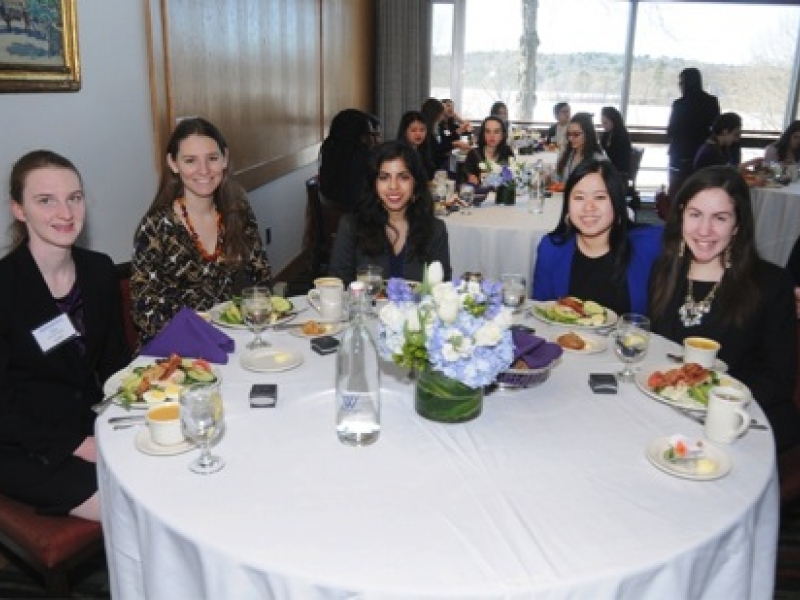Envisioning Change: Reflections from the 2014 Albright Institute
by Wendy Wellesley, March 17, 2014
Two months after the 2014 Albright Institute for Global Affairs, senior Emma Smith '14 reflects on her experience.
At this year’s Albright Institute wintersession I had the opportunity to engage with a group of 39 dedicated and globally informed fellows to think critically and creatively about the future of global infrastructure. The Institute consisted of a series of interactive presentations from expert academics and professionals. Simultaneously I worked in a group of five fellows to apply the experts’ knowledge to our final presentation on the future of technology in education.
Every guest speaker provided valuable insight into his or her specialty. From the very beginning Professor Larry Rosenwald called on us to consider how imaginative literature may contribute to human understanding to global affairs. Likewise, Shiva Balaghi of Brown University challenged us to use art in conflict areas to ”learn to see the frames that blind us.” These speakers provoked me to think about global affairs from an imaginative perspective.
Next we heard from a series of professionals who apply the Institute’s theme of infrastructure in tangible ways daily. Kitty Di Martino, Senior Advisor at the Albright Stonebridge Group discussed the need for public-private partnerships and industry-wide communication while highlighting the dearth of female leaders in the field of infrastructure. Patricia Sulser, Wellesley Class of ’79 and Chief Counsel at the IFC spoke along with Bernard Sheahan, Director of Infrastructure and Natural Resource at the IFC on the tangible success possible through public-private partnerships.
It would of course be impossible to discuss global infrastructure without talking about the environment, and several presenters discussed environmental issues ranging from handling probability in climate change and pricing carbon to building sustainability paradigms and understanding “why good people do bad environmental things” (Professor Beth De Sombre). Carol Browner, the Institute’s Distinguished Visiting Professor and the longest serving Administrator of the Environmental Protection Agency and former US Secretary of State Madeleine Korbel Albright brought these concerns to the forefront in their discussion “The Politics of Climate Change.”
Yet without a doubt no presentation affected me to the extent of Ophelia Dahl’s talk, "Partners in Health: Partnership and Accompaniment." Ophelia Dahl ’94, executive director of Partners in Health, discussed the need to re-envision healthcare in the developing world. As Ophelia Dahl described building high-quality medical facilities in Haiti and Rwanda through partnership with local organizations it became clear that the ability to look at a strip of mountainous terrain or a decaying building and see a technologically advanced, well-equipped hospital requires imagination. The ability to imagine this so clearly that you will invest time, money, and effort into planning, negotiating, and building such a facility requires outright vision and bravery.
As I listened to Ophelia Dahl all of the pieces of the Institute fell into place. Imagination and the arts intersected tangible efforts to negotiate and build globally conscious infrastructure. While much of global affairs does not yet take this creative interdisciplinary approach, the Albright Institute teaches students such as myself the value of challenging the status quo in our search for what is effective. Working with my team members, who study physics, economics, political science, and philosophy, I saw our ability to form creative and courageous ideas. As former Wellesley College President Nan Keohane told us, “We want opportunities to form relationships with people who encourage us to resist conformity.” The Albright Institute provided just this opportunity.
-Emma Smith '14
Quotations provided by Ellen Bechtel. Photograph of Education Team taken by John Mottern.